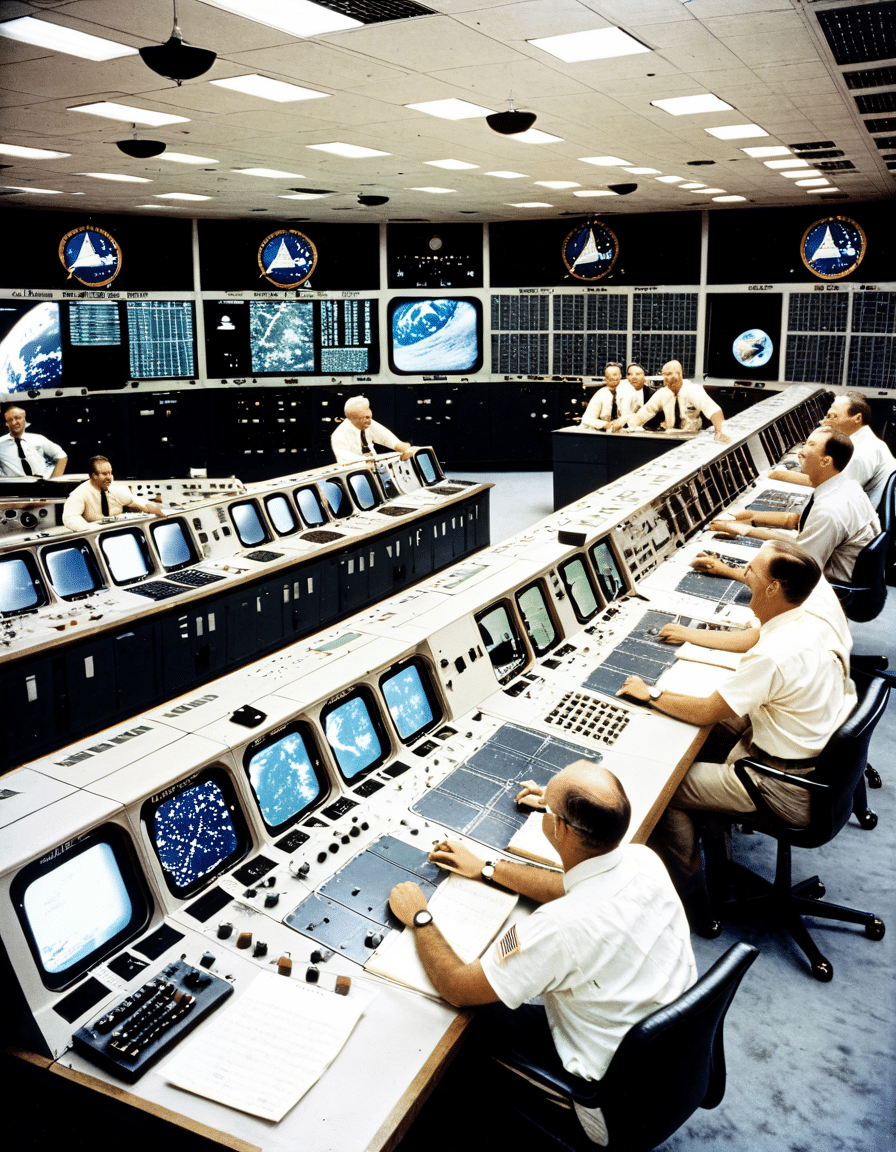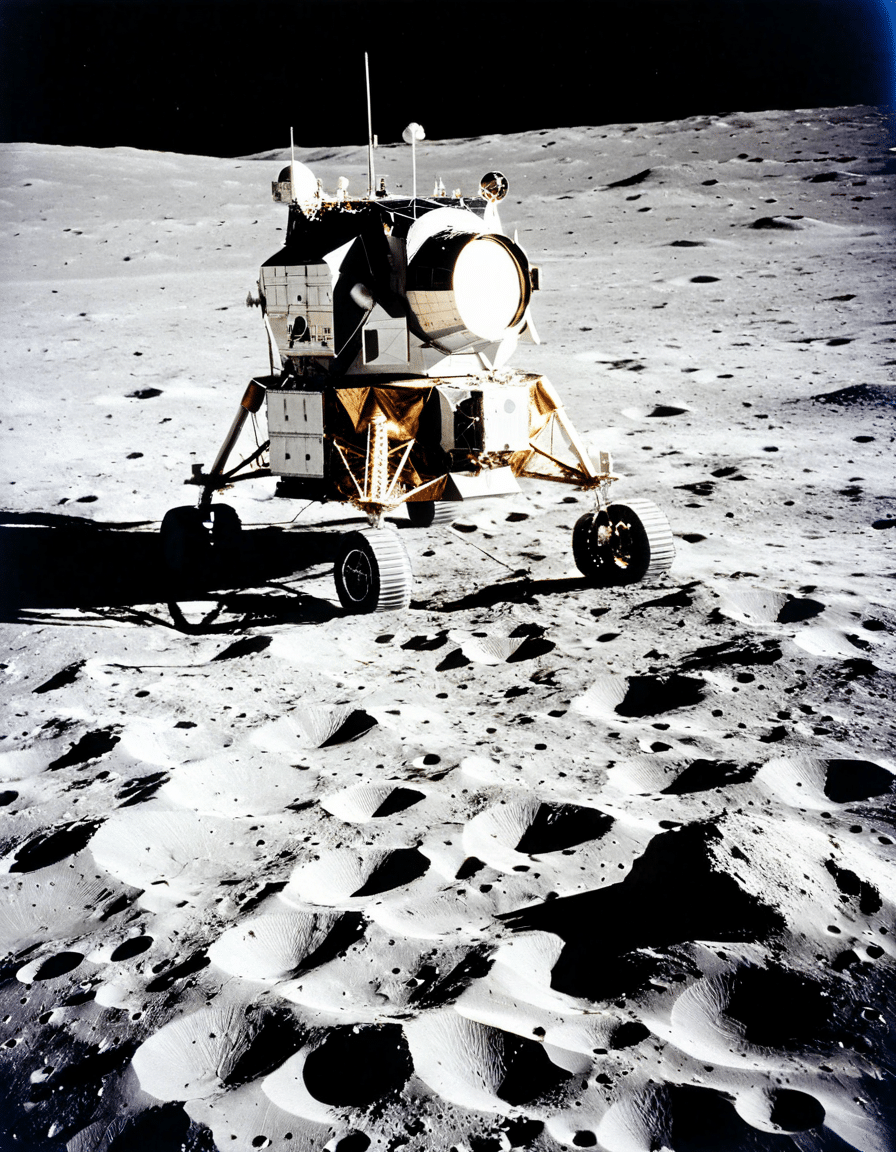The Apollo 11 mission is not just a footnote in the annals of space exploration; it’s a seismic event that reshaped humanity’s relationship with the cosmos and altered the cultural narrative of the 20th century. As one of the most celebrated achievements in history, Apollo 11 has influenced everything from film to technology, inspiring generations to dream big and reach for the stars. Buckle up, movie buffs and space enthusiasts! Let’s dive into the changes sparked by that iconic mission.

7 Ways Apollo 11 Influenced Pop Culture and Technology
1. The Blueprint for Future Missions: Apollo 13’s Lessons
Apollo 11 was the stepping stone for future missions, including the ill-fated Apollo 13. While Apollo 11 marked a monumental success, Apollo 13’s challenges reinforced the importance of ingenuity. The iconic phrase “failure is not an option” emerged from these lessons, became a powerful motto at NASA standing for resilience and adaptive problem-solving. This mantra not only defined the organization but also seeped into various industries, shaping how teams tackle their obstacles. It teaches us that when challenges arise, creativity and collaboration can foster incredible solutions.
2. Cinematic Inspiration: From 2001: A Space Odyssey to Reality
Stanley Kubrick’s “2001: A Space Odyssey,” released in 1968, blurred the lines between science fiction and reality just in time for Apollo 11. The movie’s groundbreaking visuals and themes around space travel ignited public interest and set the stage for the lunar landing. Its depiction of artificial intelligence and human evolution resonated with audiences, creating an atmosphere ripe for excitement. If you haven’t watched it yet, grab your popcorn, because this film didn’t just entertain; it set expectations for what space missions could truly look like and helped to frame how an entire generation imagined the possibilities of science.
3. Women in Space: The Legacy of ‘Hidden Figures’
“Hidden Figures” celebrated the contributions of African-American women at NASA, including Katherine Johnson, whose calculations were vital for Apollo 11. This film showcased how these brilliant women broke through gender and racial barriers during the space race, injecting a fresh narrative into the cultural consciousness. It sparked discussions around representation and diversity in STEM fields that continue to resonate today. The inspirational stories of these trailblazers remind us of the importance of acknowledging unsung heroes and creating a more inclusive future for the next generations.
4. Pop Culture Icons: Princess Leia and the Galactic Influence
Carrie Fisher’s portrayal of Princess Leia in the 1977 “Star Wars” franchise stands as a testament to how Apollo 11 inspired cultural figures. Leia represented bravery and independence, qualities that reflected the spirit of the moon landing. The character became a symbol of empowerment, particularly for women, encouraging young girls to pursue ambitions in fields previously dominated by men. She showed us that anyone can be a hero, whether they’re fighting in a galaxy far, far away, or working on groundbreaking missions like Apollo 11.
5. Technological Advancements: Spin-Offs from Space Exploration
The Apollo 11 mission spurred numerous technological advancements beyond moon landings. From telecommunications to medical devices, innovations like infrared ear thermometers and memory foam emerged from NASA’s research. These technologies became staples in our everyday lives, demonstrating that the quest for space can yield practical benefits for humanity. Every time you snuggle into a memory foam mattress or take your child’s temperature rapidly, remember that some of these conveniences trace their roots back to Apollo 11!
6. Artistic Representation: The Moon Landing’s Impact on Visual Arts
The cultural fascination with space didn’t escape the world of art. Iconic figures like Andy Warhol honed in on the moon landings, creating works that captured society’s awe and wonder. His “Moonwalk” series symbolized the excitement and ongoing dialogue surrounding human achievement and exploration. The artistic landscape expanded as artists sought new ways to represent the broader implications of Apollo 11, forcing the world to reckon with our place in the universe.
7. Legacy and Inspiration: Shaping Future Generations
The legacy of Apollo 11 is undeniable. It fueled passion for space exploration that persists today. Organizations like SpaceX and Mars One are directly inspired by Apollo 11, with goals that reach beyond the moon and aim for human colonies on Mars. The mission galvanized innovation, burning a flame of curiosity and ambition that ignites present and future endeavors.

The Long-Lasting Effects of Apollo 11 on Scientific Inquiry
Apollo 11 wasn’t just an engineering achievement; it sparked a movement that redefined what was possible. Its success pushed the envelope for international collaboration, paving the way for cooperative missions like the International Space Station (ISS). Scientific inquiry now has different pillars of support, emphasizing teamwork across disciplines, uniting engineers, scientists, and policymakers in a common goal – exploring the unknown.
As we strategize our way to the stars in 2026, it’s clear to see how Apollo 11 changed the fabric of our society. From inspiring blockbuster films to propelling technological innovations, the echoes of that monumental mission are interwoven into everything we love and believe in. The journey to the moon was more than just about space; it transformed human experience, shaping our dreams in the ever-expanding universe.
So, next time you’re streaming a film or admiring the night sky, think about the historical undercurrents that have led us to where we are now. After all, the reach for the stars never really ends—it’s just the beginning!
Apollo 11: The Journey That Changed History
A Historic Leap
The Apollo 11 mission, which took place in July 1969, was monumental. It wasn’t just another trip to space; it was humanity’s first step onto the lunar surface. Neil Armstrong and Buzz Aldrin truly became pioneers, cementing their names in history. Did you know that Armstrong took a moment to collect some lunar dust to bring back? Talk about taking the most memorable souvenir! Interestingly, while Neil was making history, another team back on Earth was prepping for life’s other challenges—much like how you can find tips getting done to boost your productivity in everyday tasks.
The Fascinating Behind-the-Scenes
During the mission, over 400,000 people worked behind the scenes to make Apollo 11 a success. This includes engineers, scientists, and even folks you’d least expect. For example, while we often muse about iconic figures like Bruce Wayne, the real superheroes were those unsung employees fueling the effort behind the scenes. And here’s a fun twist: the command module, Columbia, was named after a famous American symbol! It’s quite fascinating how names carry stories and significance, similar to how pop culture references work—like when you think about Beyonce feet and how each detail matters in her performance.
A Cultural Impact
After Apollo 11, the world felt different. Movies, music, and art started to reflect the excitement and possibilities of space. As if inspired by the adventure, characters in films began to explore similar themes. Fast forward to today; think about the modern-day cute characters like Charcadet, who evoke that sense of wonder among younger audiences. Space exploration not only propelled science but also sparked creativity across various fields. It’s akin to planning a family outing on a toddler trampoline—it’s all about the joy and the excitement of what’s to come, echoing that same vibe of pioneering spirit.
In essence, Apollo 11 wasn’t just a mission; it was a cultural milestone that reshaped perspectives. The Apollo missions unveiled not only the capabilities of humankind but also inspired generations. Let’s remember that while we soar to galactic heights, there’s always a nod to creativity, whether it’s in the movies—like film Halloween the beginning or in modern celebrations like December festivities that have appreciated the accomplishments inspired by mankind’s ambitions. So, the next time you gaze at the moon, remember the legacy of Apollo 11—a touchstone of human curiosity and ingenuity.





